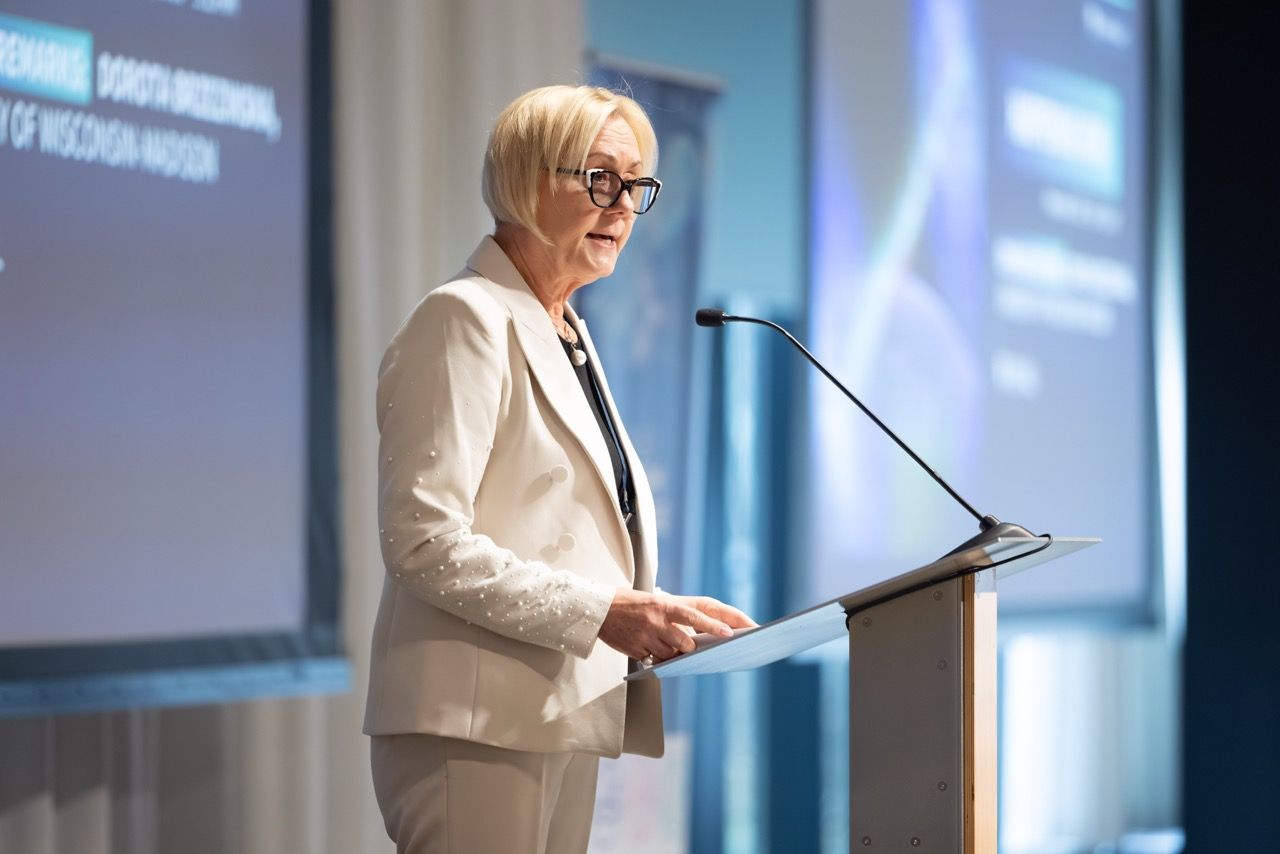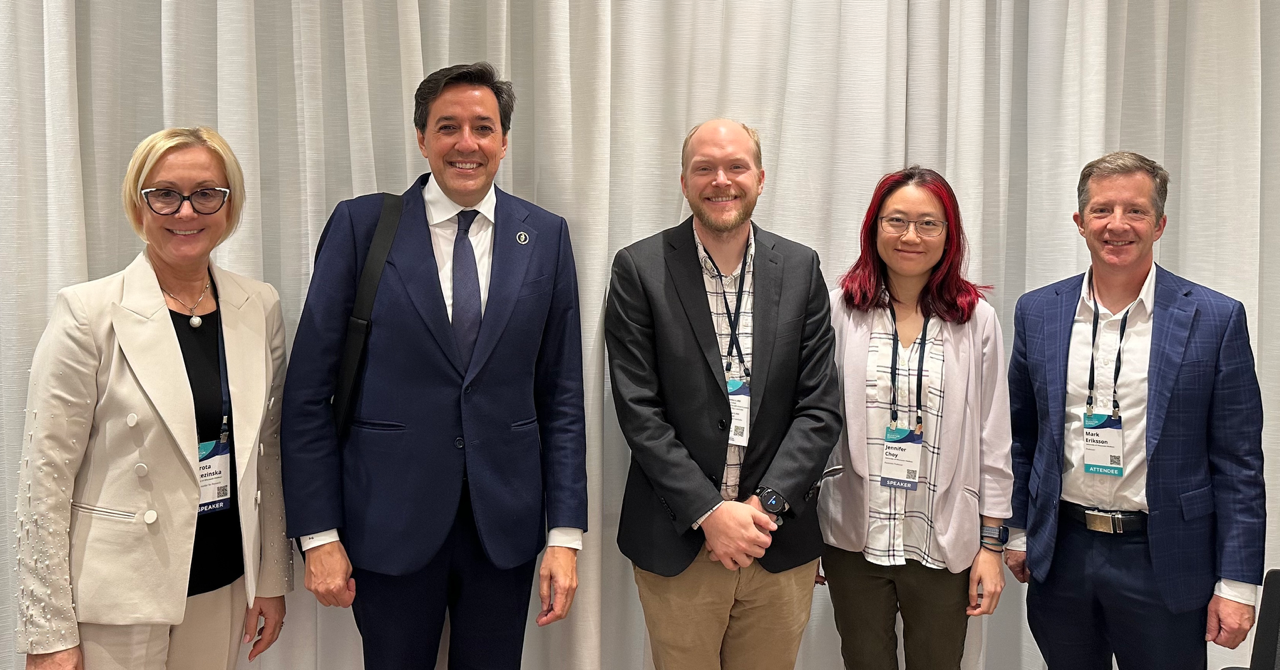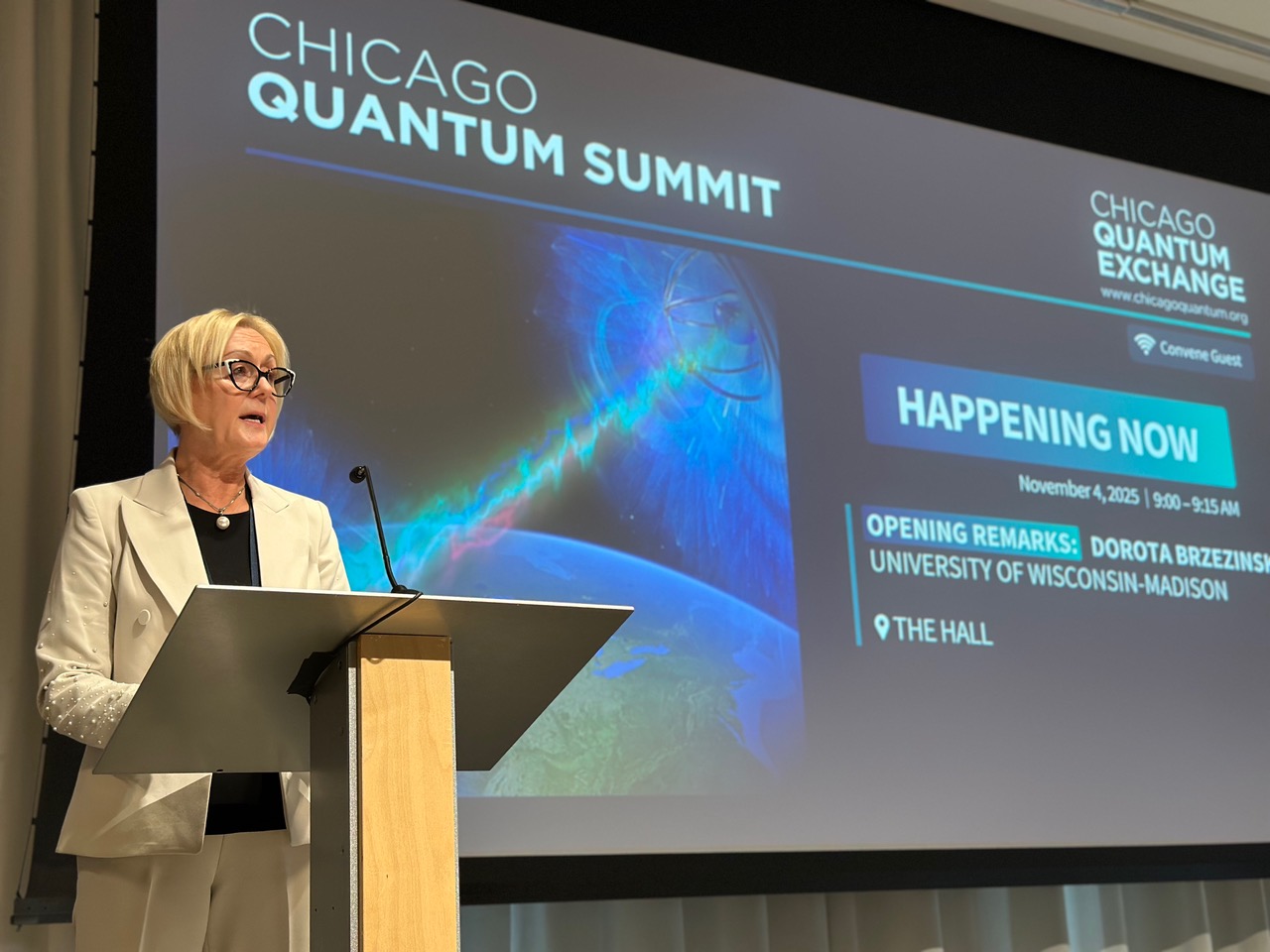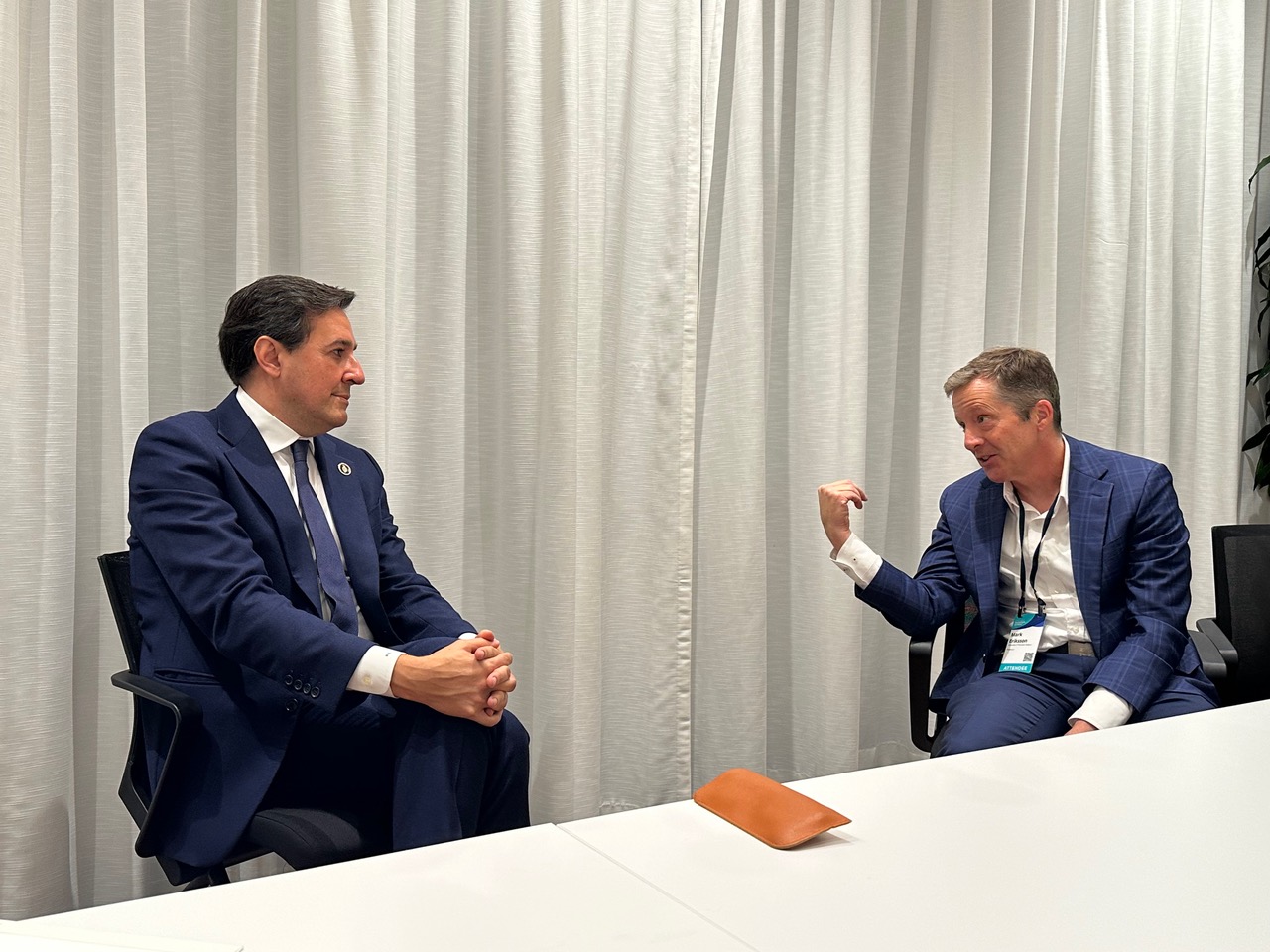UW–Madison builds on partnerships at Chicago Quantum Summit
The eighth-annual Chicago Quantum Summit was held Nov. 3-4, 2025 convening more than 500 top industry, government, and academic leaders from around the world for dialogue aimed at shaping the future of quantum technology. Held in downtown Chicago, at the center of the globally recognized Illinois-Wisconsin-Indiana quantum hub, the two-day event highlighted breakthrough research, commercialization and workforce development efforts, and field-defining discussions at the intersection of quantum technology and society.
The Summit was hosted by the Chicago Quantum Exchange, an intellectual hub in Illinois, Wisconsin, and Indiana that advances the science and engineering of quantum information, trains the future quantum workforce, and drives the quantum economy in collaboration with leading universities, national labs, and industry partners.
CQE leads the region’s designation as a top global quantum technology ecosystem, including The Bloch Quantum US EDA Tech Hub and an NSF Regional Innovation Engine development award. The CQE is based at the University of Chicago’s Pritzker School of Molecular Engineering and anchored by the Argonne National Laboratory and Fermi National Accelerator Laboratory, the University of Illinois at Urbana-Champaign, the University of Wisconsin–Madison, Northwestern University, Purdue University, and more than 50 corporate, nonprofit, international, and regional partners.

Dorota Brzezinska delivers welcome at the Chicago Quantum Summit. Photo submitted by Chicago Quantum Institute November 2025
In speaking at the Summit, UW–Madison Vice Chancellor for Research Dorota Brzezinska noted, “Quantum science has entered a new phase, often called the second quantum revolution, where quantum science is used to engineer new devices and capabilities. Quantum computing technologies are also expected to greatly accelerate AI advances, and vice-versa. Key to this acceleration is partnership with the government and we are joined today by several distinguished guests representing federal agencies that are interested in investing in QISE.(Quantum Information Science and Engineering.”
She added: “Together we will advance the science and engineering of quantum information, and responsibly shape a full ecosystem capable of bringing quantum solutions to bear on the world’s most urgent challenges.
-
- We will enhance our competitiveness in the global space.
- We will train the future quantum workforce.
- We will drive the quantum economy in collaboration with universities such as UW–Madison, national labs, and industry partners.”
The 2025 Summit focused on:
- Advancing quantum information science and engineering research across universities, government, and industry, including the global 2025 Boeing Quantum Creators rising stars
- Highlighting opportunities and needs for global innovation and investment, commercialization, and end-use technology deployment
- Exploring the intersections between quantum technologies and society, including workforce development, legal and policy frameworks, and security implications of quantum technologies with emphasis on equitable/ethical growth.
In other quantum news: Argonne-led Q-NEXT quantum center renewed for five years
One of five National Quantum Information Science Research Centers, Q-NEXT has received $125 million over five years to build the capabilities for interconnecting quantum technologies over small and large distances. The center collaborators include several UW–Madison researchers from Physics, Chemistry and Engineering.
Q-NEXT is a U.S. Department of Energy National Quantum Information Science Research Center led by Argonne National Laboratory. The center brings together world-class researchers from national laboratories, universities and technology companies with the goal of developing the science and technology to control and distribute quantum information.
Photos taken by UW–Madison Director of National Security Initiatives Dave Schroeder.

UW–Madison Vice Chancellor for Research Dorota Brzezińska and UW–Madison quantum faculty meet with U.S. Department of Energy Under Secretary for Science Darío Gil on November 4, 22025 Chicago Quantum Summit. Pictured (L-R) are Vice Chancellor for Research Dorota Brzezińska, Under Secretary DOE Dario Gil, Assistant Professor of Physics Matt Otten, Associate Professor of Electrical & Computer Engineering Jen Choy, and John Bardeen Professor and Steenbock Professor of Physics Mark Eriksson.

UW–Madison Vice Chancellor for Research Dorota Brzezińska provides opening remarks on November 4, 2025, during the 2025 Chicago Quantum Summit. Brzezińska discussed the importance of securing U.S. leadership in quantum, UW–Madison capabilities in quantum, quantum implications for national security, and collaboration on quantum science and engineering in the Wisconsin–Illinois–Indiana Quantum Corridor.

Mark Eriksson (right), John Bardeen Professor and Steenbock Professor of Physics, discusses quantum priorities with U.S. Department of Energy Under Secretary for Science Darío Gil on November 4, 2025, during the 2025 Chicago Quantum Summit. Gil explained the importance of academic and industry collaboration with the $625 million renewal of the National Quantum Information Science Research Centers and the next phases of U.S. quantum advancement. UW–Madison is a part of Q-NEXT, led by Argonne National Laboratory.
